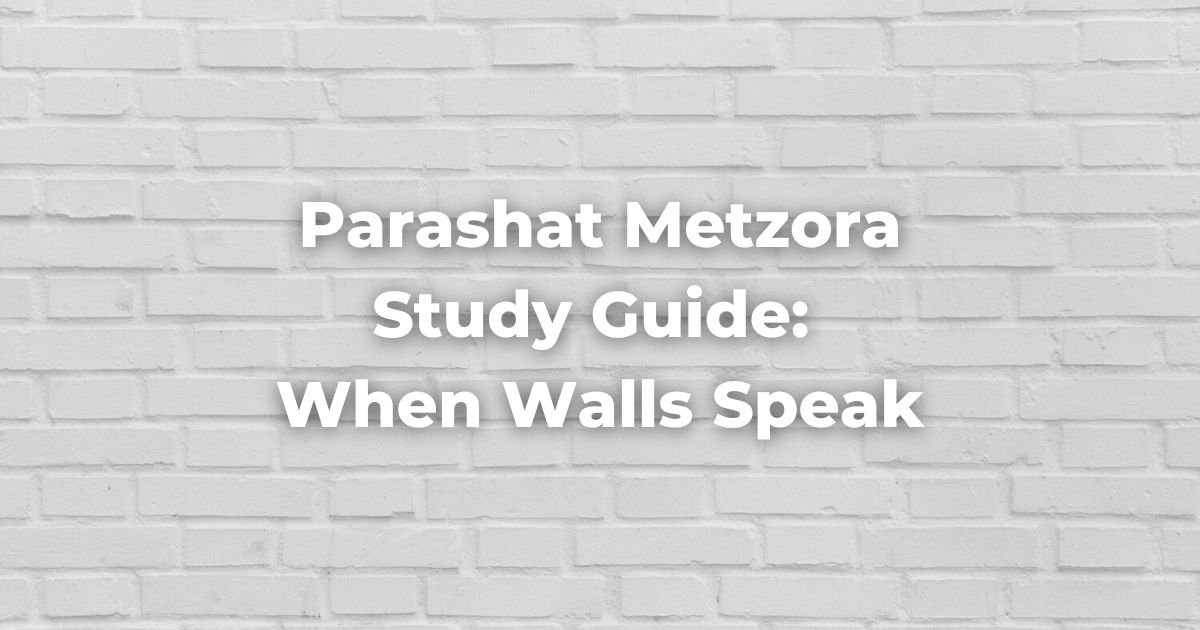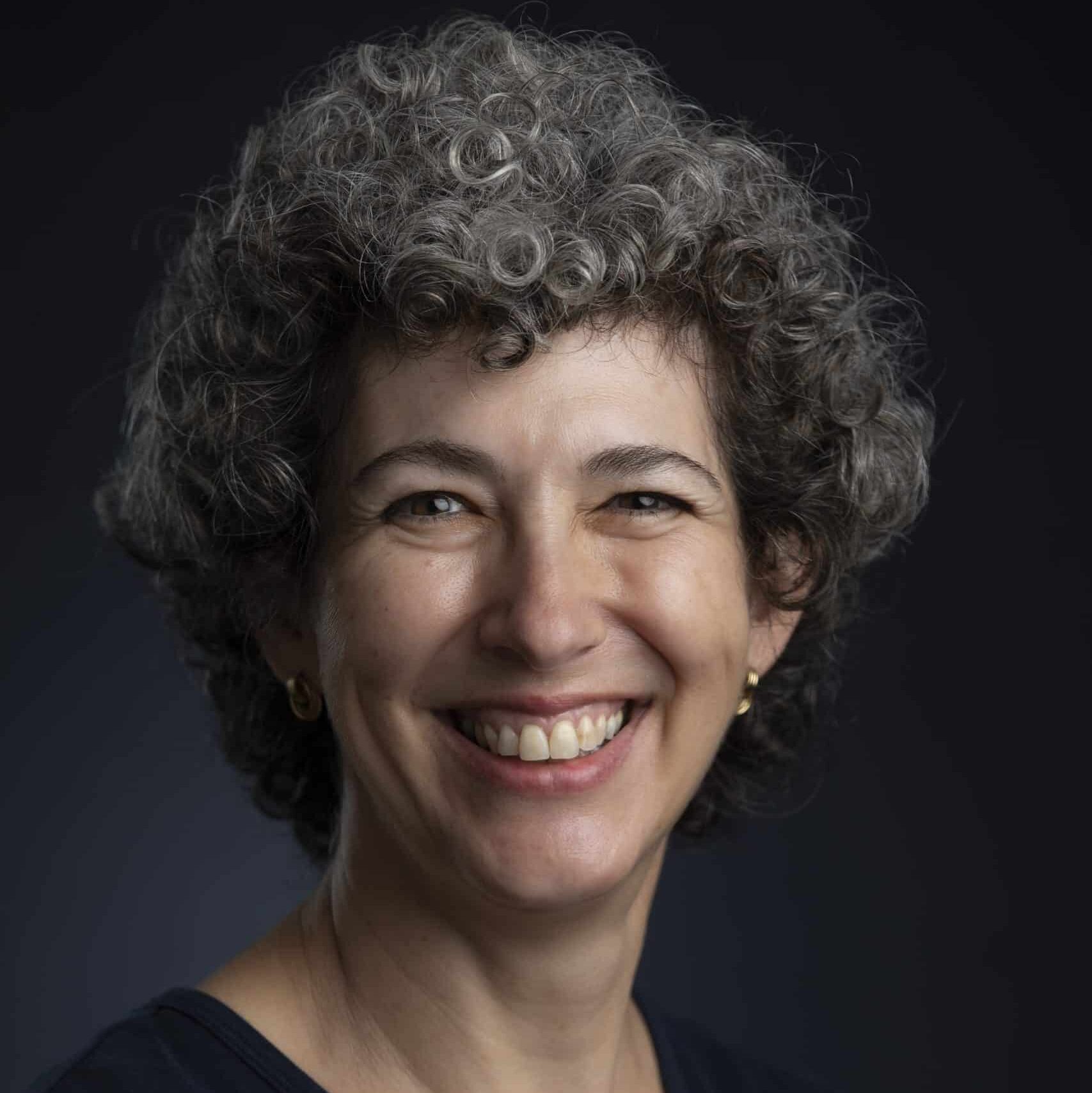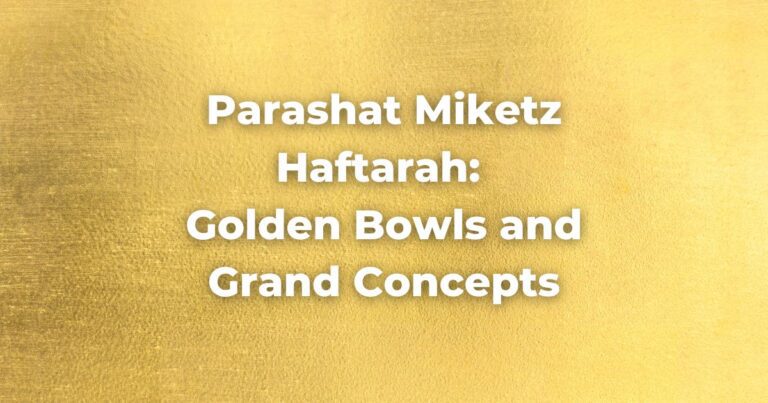Text: Vayikra 14:34-36
34 “When you come into the land of Canaan, which I give you as a possession, and I put tzaraat (leprosy) in a house in the land of your possession, 35 and he who owns the house comes and tells the kohen, saying, ‘It seems to me that there is some plague in the house,’ 36 then the kohen shall command that they empty the house before the kohen comes into it to examine the plague, that all that is in the house may not be made unclean; and afterward the kohen shall go in to examine the house.
- This law applies only to the land, not to the desert where they dwelled in tents or huts. What is it about permanent houses that might cause the arrival of an infliction associated with social ills?
Midrash Vayikra Rabbah 17
When a person says to their neighbor, “could you lend me a measure of wheat?” And they reply, “I don’t have any” … What does the Holy One … do? The plague erupts within that house, and while the person is bringing out their possessions, people see, and say, “Didn’t they say they didn’t have anything at all?! Look at how much wheat there is!”
- The roots of tzaraat are understood to be spiritual and social. What deficiency does the tzaraat of the home indirectly help a person work on?
- How might a person be made aware of such a deficiency today, in a discreet manner?
Commentary: Ibn Ezra on Vayikra 14:34
When you come into the land of Canaan—Scripture reads thus for this law applies only in the Land of Israel because of the great status of the land; for the Mikdash (temple) was among them, and the Glory was in the Mikdash.
And I put—The event is contingent on God’s putting.
- This aspect of tzaraat is limited to the land of Israel. How do you think that the presence of the Mikdash affects people’s homes?
- What other aspects of living in the land might contribute to the existence of “tzaraat of the house”?
Commentary: Sforno on Vayikra 14:36
Empty the house before the kohen comes—And he shall not come before that, and so, there will be time for the owner to do teshuva and pray, and the kohen has time for prayer as well. With this, the kohen will announce the period of isolation.
- Both Sforno and Ibn Ezra point out that the tzaraat is God-inflicted rather than an infectious situation. How does Sforno prove this?
- Why do you think that the owner should be praying and doing teshuva before the kohen arrives? Why is the kohen praying? Where does Sforno detect the window of opportunity in the situation
See more: Parashat Metzora
Originally posted as part of the Conservative Yeshiva at the Fuchsberg Jerusalem Center’s Torah Sparks. Support TorahRefers to the first five books of the Hebrew Bible, the Tanakh, also called the Five Books of Moses, Pentateuch or the Hebrew equivalent, Humash. This is also called the Written Torah. The term may also refer to teachings that expound on Jewish tradition. Read more learning from the Fuchsberg Jerusalem Center/Conservative Yeshiva for leaders and seekers around the world here
Authors
-

Vered Hollander-Goldfarb teaches Tanach and Medieval Commentators at the Conservative Yeshiva and is a regular contributor to Torah Sparks, FJC’s weekly message on the weekly Torah portion. She received her M.A. in Judaic Studies and Tanach from the Bernard Revel Graduate School of Yeshiva University and studied at Bar-Ilan University and the Jewish Theological Seminary. Before making aliyah, Vered taught at Ramaz School and Stern College in New York.
View all posts -



The Fuchsberg Jerusalem Center (FJC) is a home in the heart of Jerusalem where leaders and seekers can find an authentic place in Jewish tradition to call their own. FJC offers opportunities to study, pray and explore within an egalitarian and inclusive setting, creating multiple pathways for finding personal and communal meaning.
View all posts






